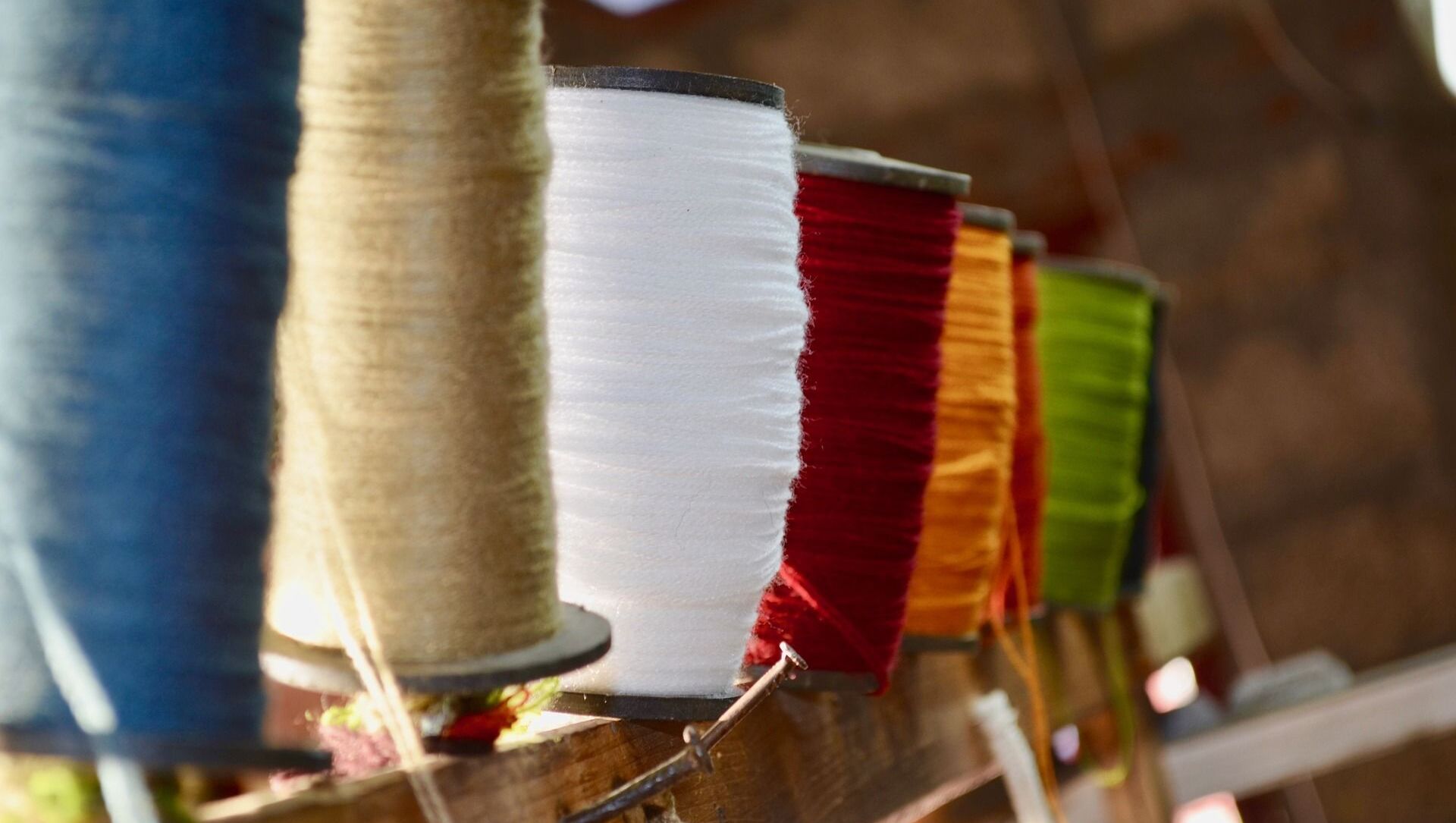Unveiling India’s annual budget for 2021-2022 on Monday, Finance Minister Nirmala Sitharaman announced “a new scheme to launch seven mega investment textile parks (MITRA)” around the country over three years.
These seven new mega textile parks will have state-of-the-art infrastructure, a research and development lab with integrated facilities, and a quick turnaround to minimise transport losses.
A scheme of Mega Investments Textile Park will be launched in addition to PLI Scheme which will create world-class infrastructure with plug & play facilities to enable global champions in exports: Finance Minister Ms @nsitharaman.#BudgetWithFICCI #UnionBudget2021 #Budget2021 pic.twitter.com/U63v8TWxVS
— FICCI (@ficci_india) February 1, 2021
To benefit cotton and silk growers, Sitharaman also proposed to raise customs duty on cotton "from nil to 10 percent and raw silk and silk yarn from 10 percent to 15 percent".
“There is a need to rationalise duties on raw material inputs to manmade textiles. We are now bringing nylon on a par with polyester and other man-made fibres. We are uniformly reducing the basic customs duty (BCD) on caprolactam, nylon chips and nylon fibre and yarn to 5 percent. This will help the textile industry, MSMEs (Micro, Small & Medium Enterprises), and exports, too,” Sitharaman added.
Mega investment textile park scheme to be launched in addition of PLI scheme to create jobs in the sector; 7 textile parks to be established over 3 years: FM @nsitharaman #Budget2021 #BudgetWithForbesInd #NirmalaSitharaman pic.twitter.com/xtIYInt5c0
— Forbes India (@forbes_india) February 1, 2021
Industry Hails Government's Move
Many industry stalwarts have welcomed this move by the government which aims to make India’s textile industry globally competitive, attract large investments and boost employment generation.
Designer Paras Bairoliya from Geisha Designs points out that “the textile/apparel industry contributes to 7 percent of industrial output and nearly 12 percent of the country's exports. With more than 50 million people employed directly or indirectly, this industry is the largest source of employment in the country.”
The launch of mega textile parks, Paras says, “will be a big boost to employment and continuity of indigenous crafts and skill sets. This is a big step towards India's dream of becoming self-reliant.”
Anuj Mundra, chairman and managing director of Nandani Creation, says: “With a focus on Atmanirbhar Bharat, the announcement of the establishment of seven textile parks by the Modi government will not only boost the local textile industry but will also help India become a world leader in the textile sector. The government believes in giving a big shot in the arm to textiles and local manufacturing with a special focus on 'Vocal for Local' and encouraging people to buy Made in India products."
Designer Gautam Gupta, of the label Asha Gautam, is hoping for “correct implementation of the scheme so that it will make the dream of Made in India a bigger reality” and Rajiv Rai Sachdev, chairman and managing director of Advantage Nature, believes that the state-of-the-art infrastructure and R&D labs will help to promote sustainable textiles.
“Sustainable, 'green' textile is needed now not only in the Indian textile industry but the major global brands also. This decision will enormously boost India’s image as a global textile hub for sourcing sustainable textiles. It will tremendously add to the Atmanirbhar Bharat campaign and Sustainable Development Goals (SDGs) pledged by our prime minister Modi at the UN Summit,” Sachdev says.
With an idea to make India self-sufficient, Modi launched Atmanirbhar Bharat along with the initiative Vocal for Local that aims to encourage people not only to buy local products but to be outspoken about them and to promote them proudly.



